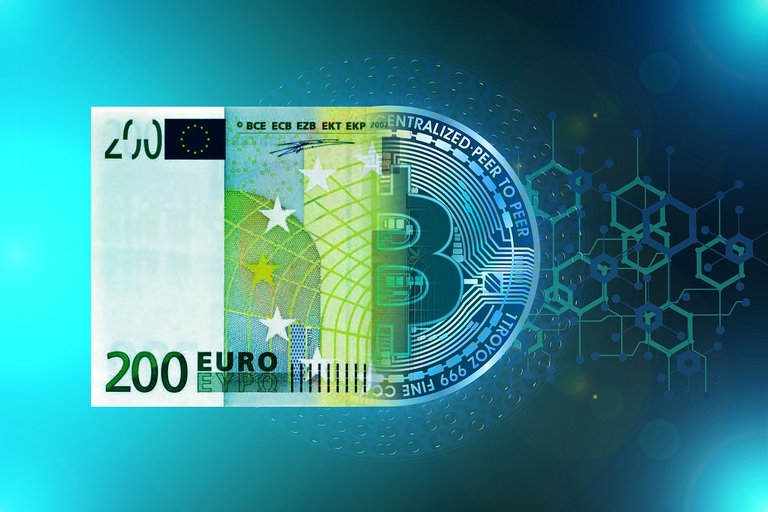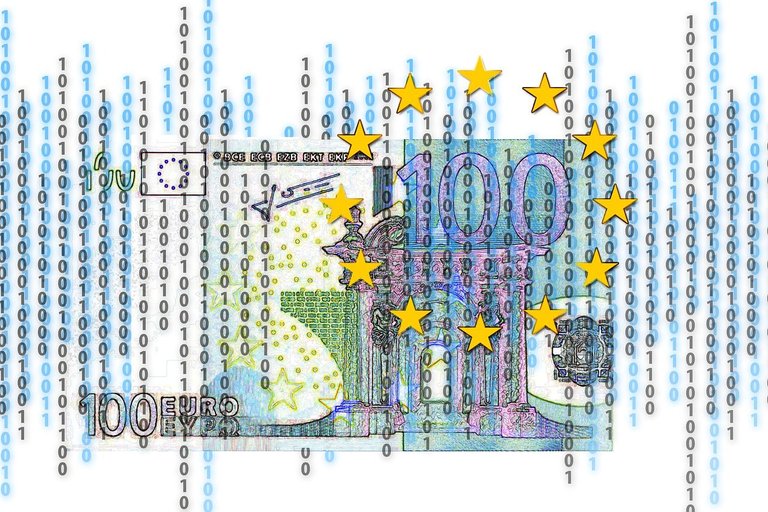Hello, friends. Today I was able to read an article that made me curious, I am referring to the creation of the digital euro. I know that many of us have been used to dealing with banknotes and coins, making bank deposits in the traditional way. However, the European Central Bank (ECB) has decided to turn all this around with the digital euro project. It is in an initial phase of research and preparation, but the promise of change is in the air and it seems that it will be a reality in a very short time.
Faced with this new proposal, it is inevitable to question the advantages it could bring compared to the traditional payment methods we have known. But it is also crucial to reflect on the possible dangers that could accompany its use. Of course, there are already electronic payment methods such as bank cards and PayPal, among others, but the digital euro is on another level. Let's remember that in El Salvador bitcoin is legal for use, the difference is that cryptocurrencies are decentralized and this digital currency is not. This could be a problem, since it would mean the end of our financial privacy, so they would know every detail of our expenses.
However, the challenges are not limited to the loss of privacy. The European Union could impose restrictions on digital money, which raises questions about users' autonomy and freedom. On the positive side, being in the euro zone would mean that payments could be made with this digital currency in any corner of it. As legal tender, it would become a compulsory electronic payment method accepted by all businesses. Of course, in theory.
Now, let's talk about the design of the digital euro. The idea is that it will be adapted to new technologies, which sounds pretty exciting. In addition, it is expected that 100% of banks in Europe will accept this new means of payment, regardless of the euro country of origin. However, concerns arise as to whether it will respect privacy, in the same way they do with bank deposits.
One point in favor is that the European Central Bank has no intention of eliminating cash. Imagine the complications for undocumented workers, who are an essential part of the European community. Also for small businesses that are just starting out and do not have payment terminals. Diversity of payment methods is essential to ensure inclusiveness and accessibility.
Another positive detail is that the European Union will have its own indigenous payment system, moving away from U.S. giants such as Visa and MasterCard. This could strengthen the continent's financial independence. However, this is where my doubts begin. I have seen restrictions in other parts of the world with digital currencies, such as the MLC in Cuba and even restrictions on bank accounts. Will the digital euro be free of these complications?
Anyway, friends, what do you think of the digital euro, more advantages than disadvantages? I imagine that the answer to these questions is mixed. We can only wait and see how this new stage in European financial history unfolds. Greetings and have a great day.
Reference:

📷 Xiaomi Redmi 9A | 💻 Asus Celeron N4020
Original text in Spanish: Translated with DeepL
Twitter

Posted Using InLeo Alpha

